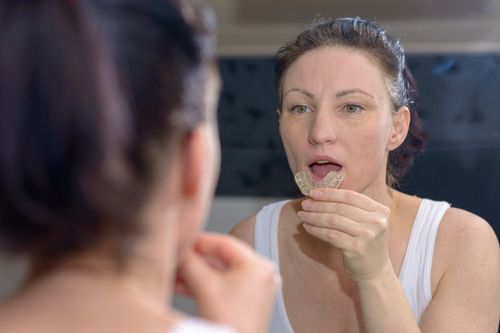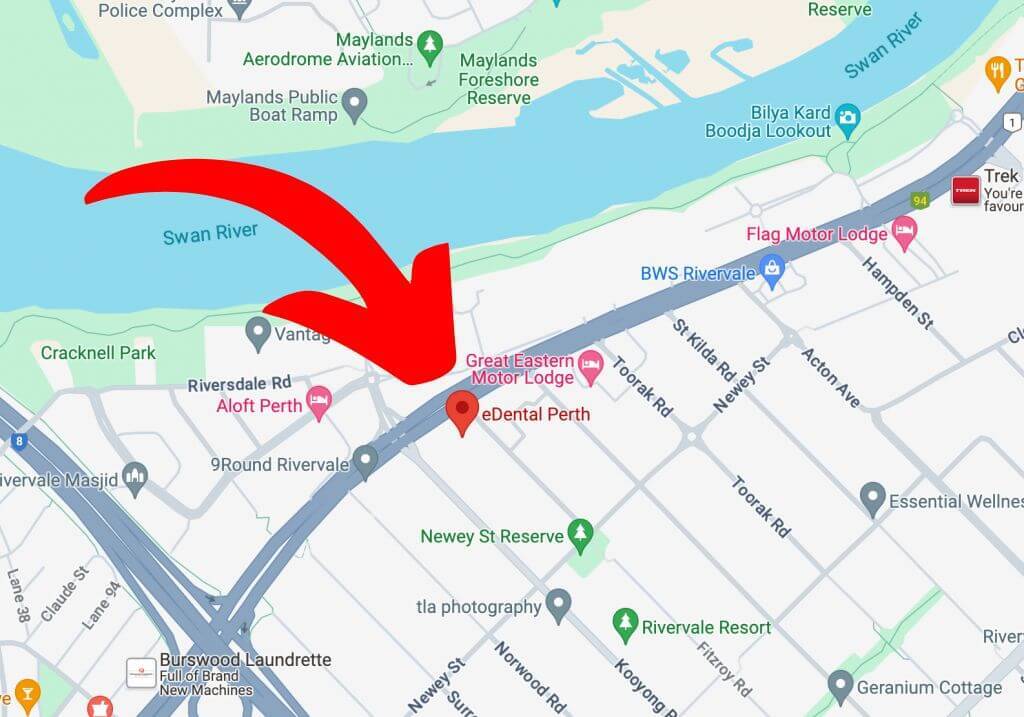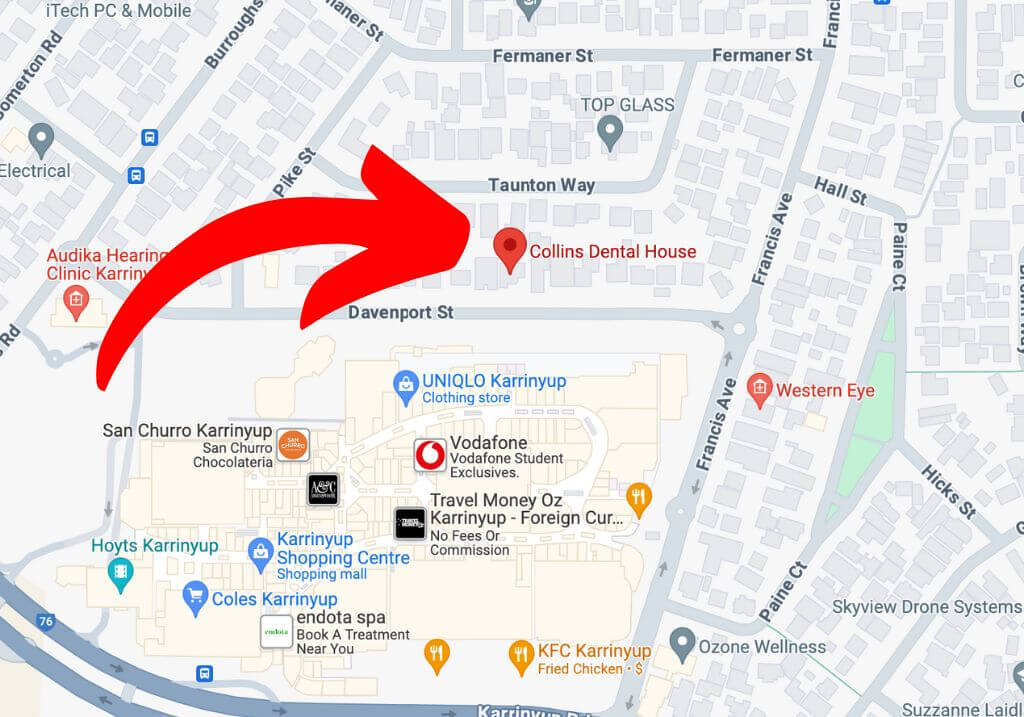Has your jaw been hurting lately? Perhaps a ringing in your ears that you cannot identify? Or your head might be hurting, and you don’t know why. You might have a condition called bruxism. It is where you grind, gnash, or clench your teeth, and it can happen whether you’re awake or asleep. If you suddenly became conscious and relaxed your mouth while reading this article, you may be stressed.
TMJD or Temporomandibular Joint and Muscle Disorder
If you decide to have yourself checked, your dentist may check for tenderness in your jaw, teeth abnormalities, or TMJ disorders. TMJD or temporomandibular joint and muscle disorder is where the muscles and joints that attach to your lower jaw and skull do not function properly, thus causing severe pain. TMJD can cause bruxism, but bruxism may worsen existing TMJD.
A dentist or a doctor may suggest something to ease the pain, but so far, there are no known cures for bruxism. One known way to lessen bruxism is to wear a dental night guard, similar to a retainer. Each nightguard is custom-made and fits the person’s mouth to avoid being uncomfortable, especially while sleeping. It has many names such as bite splint, dental guard, or mouthguard, but it must not be confused with a sports mouthguard, which athletes wear to protect their teeth and mouth from blunt force trauma. These athletic mouthguards are softer, thus not serving the purpose of preventing your teeth from grinding into each other.
Getting the proper night guard prevents your teeth from developing plaques and cavities since a good nightguard will still allow saliva to reach your gums and teeth. Because it is retainer-like, it would also prevent your mouth from changing your bite. It’s made of a more rigid material than a sports mouthguard, and your teeth won’t wear the material down.
Types of Nightguards:
Hard Nightguards
- These are used to treat TMJ. They are made from acrylic and are the most durable kind in the market.
Over-the-Counter Nightguards
- These nightguards, sold in some pharmacies, can fit any mouth. Some need to be boiled first to soften the material before it is placed in the mouth. The downside is your bite might shift since it was not created to fit your mouth.
Custom-Made Nightguards
- Your dentist will customize the nightguard to fit your mouth perfectly, using a mold made from your teeth’ indentations. This is the most recommended type of nightguard, especially for severe bruxism cases.
In getting a nightguard, you should consider two things: comfort and teeth condition. If you feel uncomfortable wearing your nightguard, chances are you would skip wearing them or not at all. Not wearing it might worsen your condition. Additionally, consider the welfare of your teeth when choosing the right nightguard. If it fits you perfectly, you might even have a better bite and better teeth as time progresses.
Now, Let us Get on to Five Main Reasons Why You Should Wear a Nightguard.
Teeth Damage Prevention
Grinding and gnashing your teeth causes them to lose enamel, which in turn might cause sensitivity. Without enamel protection, your teeth are also prone to be decayed. If you have teeth fillings, grinding may cause them to wear out, and your weak teeth might break from the pressure. Wearing a night guard prevents your upper and lower teeth from wearing each other down.
TMJD Prevention
As mentioned earlier, wearing a nightguard prevents you from developing the worst causes of the disorder, which are jaw disk displacement, headaches, chewing difficulties, and ringing in the ears. It eases muscle tension you apply to your jaws and teeth, especially when you are unconscious.
Migraine Prevention
Since the muscles around your head, neck, and face are all tensed, it might cause you severe headaches. However, please do not self-diagnose just because you have chronic headaches. If you suspect that you have bruxism, visit your dentist. They will be able to prescribe a solution that fits you and your needs best. Keep in mind that headaches aren’t always caused by bruxism. If your dentist has eliminated the condition, go to a physician because your headaches might be caused by something else.
Money Saver
Getting the right nightguard may cost you money, but it is a one-time expense. Compared to the amount you might incur for restorative dentistry, a custom-made nightguard will seem cheap. If you procure a nightguard at the onset of your symptoms, you might even skip having teeth problems at all.
Avoid Long-Term Damage
Getting a nightguard and wearing it every day is an excellent way to avoid TMJD, bruxism, and severe teeth and gum problems. Your bite may even improve. You would not need to visit your dentist constantly to have them diagnose your mouth and jaw problems.
Alternative Medication – Mouthguard For Sleeping
A nightguard is still the most recommended solution for bruxism, but your doctor may prescribe oral medication to ease other symptoms. Muscle relaxants, Botox, and stress/anxiety pills are medications a dentist or doctor may recommend to someone with bruxism.
Mouthguard For Sleeping Conclusion
Bruxism can occur in men, women, children, and senior citizens, and there’s no telling how severe the damage is without going to a dentist. Since stress is the leading cause of bruxism, it’s best to have your mental health checked as well. There are ways to eliminate stress, which in turn could lessen or even prevent bruxism from developing. The pandemic has been stressful for everyone, but modern medicine has been very efficient and effective in combating stress symptoms.
There are bruxism and TMJD specialists who will be able to help you with your condition. You do not need to feel afraid; instead, let the dentist know everything you feel to recommend the best solution. If they tell you that wearing your nightguard will relieve most of your symptoms, please do so. They are called specialists for a reason.











